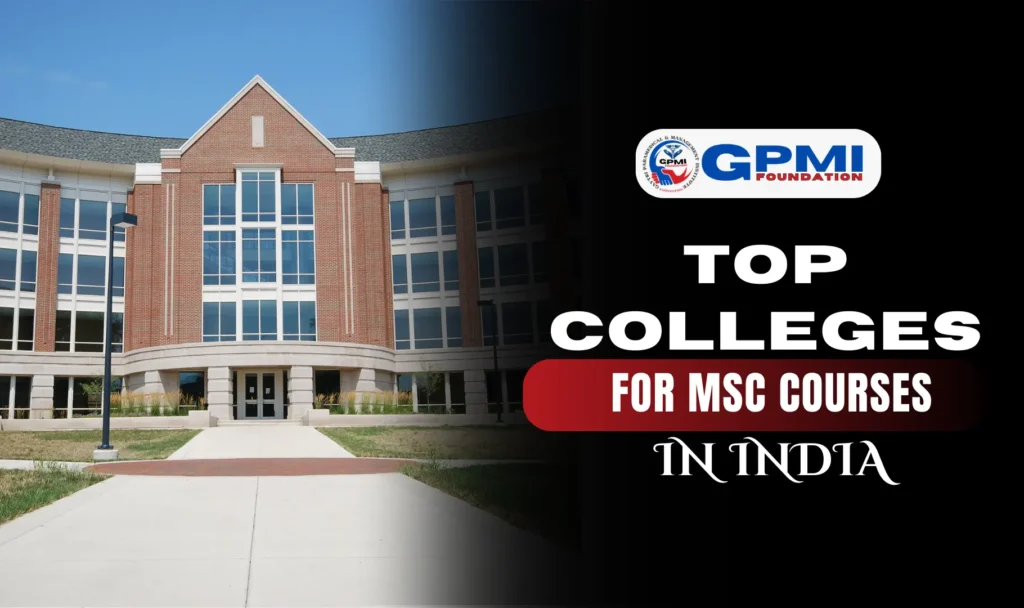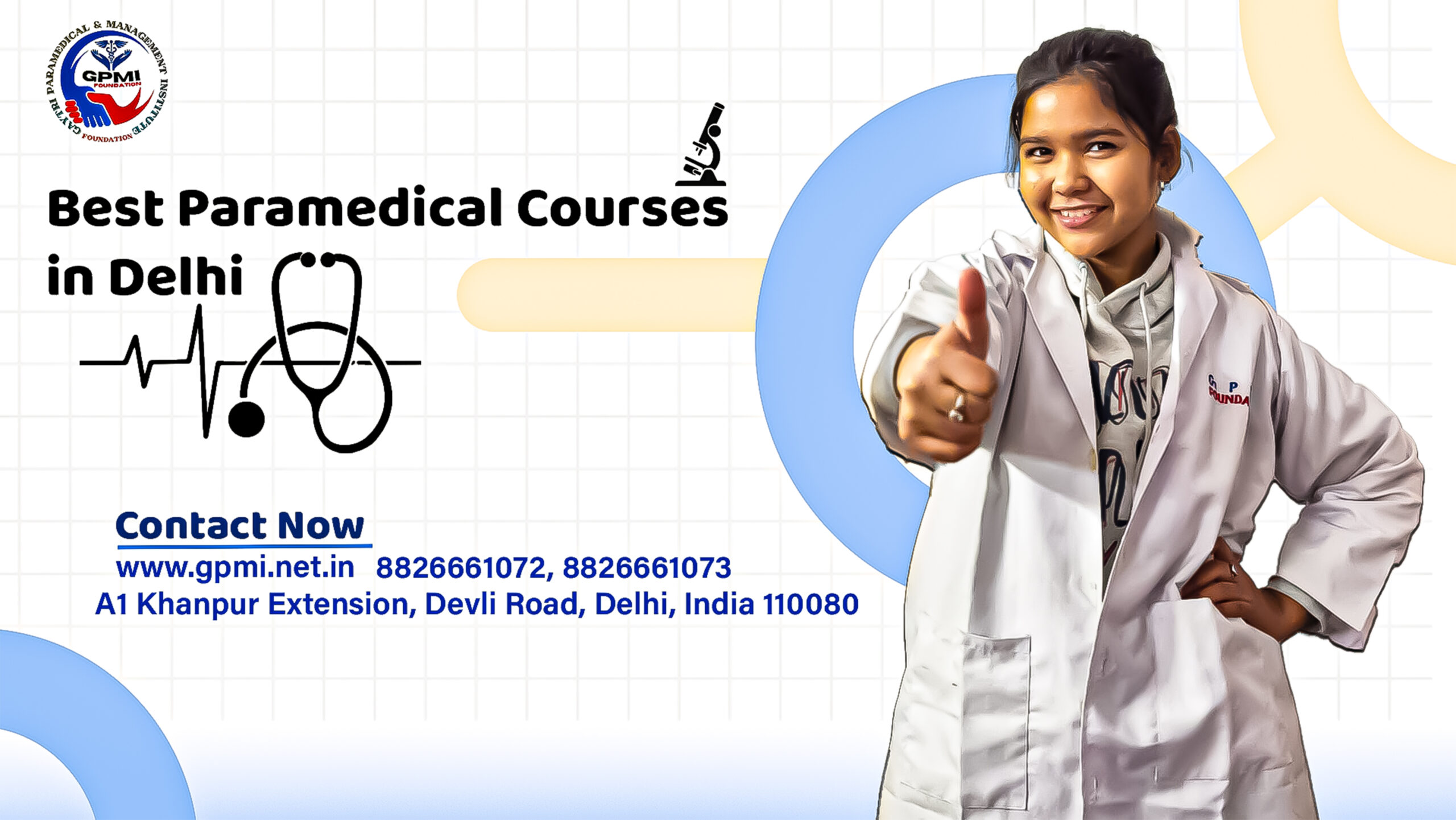Education is one of the most important parts of life because it shapes our future. After completing school, every student has to choose a stream — Science, Commerce, or Arts. This choice usually depends on their interest and career goals. Students who select the Science stream in school study subjects like Physics, Chemistry, Biology, and Mathematics. After finishing school, many of them decide to do graduation in BSc (Bachelor of Science).
But once graduation is complete, a big question comes in every student’s mind — “What should I study after BSc? Should I start working, or should I continue my studies?”
The answer depends on personal goals, but one of the best and most popular choices after BSc is to do MSc Courses (Master of Science). MSc is a postgraduate program that helps students gain deeper knowledge, advanced skills, and better career opportunities.
That’s why in this long guide, we will explain everything about MSc courses in 2026 — what they are, who can study them, what specializations are available, the admission process, career options, salaries, and the future scope.
Table of Contents
What are MSc Courses?
MSc means Master of Science. It is a postgraduate degree, which means you can study it only after completing your graduation. For science students, graduation is usually a BSc (Bachelor of Science) degree. Once you finish BSc, you can go for MSc to gain advanced and specialized knowledge in your subject.
The main aim of MSc courses is to give students deeper learning in science. While BSc covers the basics of a subject, MSc focuses on advanced concepts, practical training, experiments, and research work. This makes you more skilled and more confident in your chosen field.
There are many types of MSc courses. Some belong to pure science fields, like Physics, Chemistry, Mathematics, Zoology, and Botany. These are subjects where students mainly study theories, formulas, experiments, and natural laws. On the other hand, there are MSc courses in applied sciences, such as Biotechnology, Data Science, Nursing, Environmental Science, and Medical Lab Technology. These courses are directly linked to industries, healthcare, technology, and research.
In very simple words:
- BSc = basic level science study. You get the foundation and overall idea of the subject.
- MSc = advanced level science study. You go deeper, become more skilled, and prepare yourself for higher studies or better jobs.
For example:
- In BSc Chemistry, you learn the basics of organic and inorganic chemistry.
- In MSc Chemistry, you will perform advanced research, study industrial applications, and even work on projects related to medicines or materials.
This is why MSc courses are considered an important step for students who want to grow their careers in science, research, or teaching.
MSc Courses Details

MSc (Master of Science) is a postgraduate degree that students can join after completing their BSc or equivalent graduation. The course usually takes 2 years to complete and is divided into 4 semesters. MSc courses are offered in many subjects like Physics, Chemistry, Mathematics, Biology, Nursing, Biotechnology, Environmental Science, Computer Science, and more.
These courses focus on giving students advanced knowledge, practical training, and research skills in their chosen subject. While a BSc gives you the basics, an MSc helps you become a specialist in the field and opens the door to better jobs, research, and higher studies like PhD.
Why Do Students Choose MSc Courses?
Students choose MSc courses for many reasons. Let’s see them one by one.
- More Knowledge – After BSc, if you want to know your subject deeply, MSc is the best.
- Better Jobs – MSc degree holders get better career opportunities than BSc holders.
- Higher Studies – If you want to do PhD (Doctor of Philosophy) later, MSc is required.
- Government Jobs – Many government exams need MSc qualification, like CSIR, ICMR, ICAR, etc.
- International Scope – MSc is accepted in many countries. With this degree, you can study or work abroad.
- Personal Growth – You learn research, critical thinking, and problem-solving.
Example: A BSc student may get a job as a lab assistant. But an MSc student can become a lab manager or research scientist.
Eligibility for MSc Courses
To study MSc, you must meet certain conditions:
- You must have a BSc degree or a related graduation degree.
- You must have at least 50% to 60% marks in graduation. (Depends on college/university.)
- Some courses like MSc Nursing or MSc MLT need the same background in BSc.
- Some universities take entrance exams before admission.
Example: To do MSc Biotechnology, you should have BSc in Biotechnology, Biology, or related subject.
Admission Process for MSc Courses in 2026
Getting admission into MSc courses in 2026 is not very difficult, but you must know the proper steps. Every university or college may follow slightly different rules, but the general process is almost the same. Here is a complete step-by-step guide:
1. Check Eligibility
Before applying, students should check whether they are eligible or not. Usually, the basic requirement is a BSc or equivalent degree from a recognized university. Most colleges also ask for at least 50–60% marks in graduation. Some highly reputed universities may demand even higher marks.
Example: If you want to apply for MSc Physics, you must have studied Physics in your BSc. Similarly, for MSc Nursing, you must have completed BSc Nursing.
2. Choose Your Specialization
There are many MSc courses available, like Physics, Chemistry, Mathematics, Biotechnology, Microbiology, Nursing, Environmental Science, etc. Students must carefully select their specialization based on interest and career goals.
Tip: Don’t just choose a subject because your friends are choosing it. Select the one that matches your skills and future career dreams.
3. Apply Online
Today, almost all universities and colleges use online application forms. Students need to visit the official website of the college, register themselves, fill out the form, upload required documents (like mark sheets, ID proof, photos), and pay the application fee.
Example: If you want to study MSc at Delhi University, you have to register on the DU admission portal and fill in all details online.
4. Entrance Exam (if required)
Some top universities and institutes conduct their own entrance exams for MSc admissions. The exam usually includes subject-based questions from your graduation course.
- Delhi University (DU), Jawaharlal Nehru University (JNU), Banaras Hindu University (BHU), AIIMS, and IITs conduct MSc entrance exams.
- Private colleges may also hold small tests or sometimes take students directly on the basis of merit (graduation marks).
Tip: Students should start preparing early for entrance exams by revising BSc subjects and practicing sample papers.
5. Merit List & Counseling
After the exams (or direct applications in some cases), universities release a merit list. This list shows the names of students who are selected based on either:
- Entrance exam marks, or
- Graduation marks (merit-based admission).
After this, selected students are called for counseling sessions where they confirm their seats, select the specialization (if multiple options are available), and complete the admission process.
6. Final Admission
In the last step, students must submit their original documents like mark sheets, migration certificate, caste certificate (if applicable), passport-size photos, etc. They also have to pay the admission fee. Once this is done, the university gives an admission confirmation letter, and the student officially becomes part of the MSc course.
Example: If you are selected in MSc Biotechnology at JNU, you will need to go for counseling, submit documents, and then pay the fees to confirm your seat.
Duration of MSc Courses
- Most MSc courses are 2 years long.
- They are divided into 4 semesters.
- Each semester has theory classes, practical labs, assignments, and exams.
- Some special MSc programs like Medical or Research may take 2–3 years.
Career Opportunities After MSc
After completing MSc courses, students have many career paths.
- Research Scientist – Work in labs, universities, or research organizations.
- Lecturer/Professor – Teach in colleges and universities.
- Healthcare Professional – Jobs in hospitals, diagnostics, pharma companies.
- Government Jobs – Work in CSIR, ICAR, ICMR, DRDO, UPSC.
- Corporate Jobs – In IT, data science, environment, or biotechnology firms.
- Entrepreneurship – Start your own lab, consultancy, or training center.
Example: An MSc Biotechnology student can work in a pharma company making vaccines.
Salary After MSc in 2026
Salary depends on specialization, skills, and experience.
- India: ₹4 Lakh to ₹12 Lakh per year (freshers to experienced).
- Abroad: $50,000 to $100,000 per year.
Highest-paying MSc courses:
- Data Science
- Biotechnology
- Medical Lab Technology
- Environmental Science
Skills You Gain from MSc
By doing MSc, students get:
- Deep subject knowledge
- Research skills
- Problem-solving ability
- Logical and critical thinking
- Lab and technical skills
- Presentation and communication skills
These skills help in jobs as well as higher studies.
Scope of MSc Courses in 2026 and Beyond
Future of MSc is very strong.
- AI & Data Science – More jobs in IT and machine learning.
- Healthcare & Biotechnology – High demand in medicine and pharma.
- Environmental Science – New jobs for climate and sustainability experts.
- Global Scope – Many scholarships and jobs in foreign countries.
By 2026, MSc graduates will have more opportunities in both India and abroad.
Top Specializations in MSc Courses

MSc courses are not limited to just one subject. They cover a wide range of science and applied science fields. This gives students the freedom to choose a specialization that matches their interest and career goals. Below are some of the most popular MSc courses in 2026 with details:
1. MSc Physics
MSc Physics is for students who love to understand the secrets of the universe. It focuses on energy, matter, light, sound, space, and natural forces. Students study subjects like quantum mechanics, nuclear physics, electronics, and astrophysics.
Physics is not only about theories – it is also about real-life applications like making satellites, lasers, medical machines, and even studying space.
Career Options:
- Research Scientist in organizations like ISRO, BARC, DRDO
- Space Scientist or Astrophysicist
- Professor or Lecturer in colleges
- Data Analyst in IT companies (because physics students are strong in maths)
Example: MSc Physics graduates can work in space research centers, helping to design satellites and study black holes.
2. MSc Chemistry
Chemistry is called the “central science” because it connects physics, biology, and environmental science. In MSc Chemistry, students study organic chemistry, inorganic chemistry, physical chemistry, and analytical chemistry in detail.
Chemistry is very important in pharma companies, food industries, cosmetics, and research labs.
Career Options:
- Work in pharmaceutical companies to make medicines
- Chemical labs for testing and quality control
- Research centers for developing new materials like polymers and nanotechnology
- Teaching jobs in schools and colleges
Example: MSc Chemistry graduates are highly demanded in the drug and vaccine industry.
3. MSc Mathematics
MSc Mathematics is for students who enjoy numbers, logic, and problem-solving. The course covers advanced algebra, statistics, probability, operations research, and data science.
Today, mathematics is not only for teaching. It is used in finance, computer science, artificial intelligence, and big data.
Career Options:
- Data Scientist (one of the highest-paying jobs today)
- Statistician in government or corporate sector
- Teaching and research
- Finance and banking companies
Example: A student with MSc Mathematics can work in a multinational company as a data analyst to study market trends.
4. MSc Zoology
MSc Zoology is all about animals, biodiversity, and ecosystems. Students study subjects like animal physiology, genetics, evolution, and wildlife conservation.
It is perfect for students who love nature, animals, and biology.
Career Options:
- Zoologist in wildlife research centers
- Researcher in biodiversity projects
- Wildlife Biologist working in forests and sanctuaries
- Professor in colleges
Example: An MSc Zoology graduate can work with wildlife NGOs to protect endangered species like tigers or elephants.
5. MSc Botany
MSc Botany focuses on plants, genetics, and agriculture. Students learn about plant physiology, microbiology, biotechnology, and herbal medicine.
This specialization is important in agriculture, food industry, and pharmaceutical companies.
Career Options:
- Agricultural Scientist
- Botanist in research labs
- Plant researcher in food and herbal companies
- Professor or teacher
Example: An MSc Botany graduate can work in developing high-yield crops to help farmers grow more food.
6. MSc Biotechnology
This is one of the most modern and in-demand MSc courses. Biotechnology is a mix of biology and technology. It deals with genetic engineering, cloning, vaccines, agriculture, and industrial biotech.
Biotechnology has huge applications in healthcare, food processing, farming, and environmental protection.
Career Options:
- Biotech firms (developing medicines, vaccines, fertilizers)
- Genetic Engineering Labs
- Pharmaceutical Companies
- Research and development organizations
Example: MSc Biotechnology graduates were in high demand during the COVID-19 pandemic for vaccine development.
7. MSc Microbiology
Microbiology is the study of microorganisms like bacteria, fungi, and viruses. It is useful in healthcare, food, water testing, and medicine.
MSc Microbiology students learn how microorganisms affect humans, animals, and plants, and how they can be used in industries.
Career Options:
- Microbiologist in food and beverage companies
- Lab researcher in hospitals and diagnostics
- Medical scientist in pharma companies
- Water and soil testing labs
Example: A microbiologist helps in developing antibiotics and vaccines to fight diseases.
8. MSc Nursing
This course is only for students who have completed BSc Nursing. MSc Nursing prepares students for higher-level jobs in hospitals and healthcare.
It focuses on advanced nursing care, research, management, and leadership in nursing.
Career Options:
- Nursing Superintendent in hospitals
- Healthcare Manager
- Nursing Professor in colleges
- Clinical Nurse Specialist
Example: MSc Nursing graduates can lead a team of nurses in big hospitals and handle patient care management.
9. MSc Medical Lab Technology (MLT)
This course is important in the diagnostic and healthcare sector. MSc MLT students are trained in pathology, diagnostic testing, blood analysis, and laboratory management.
Since healthcare is growing fast, MSc MLT graduates are always in demand.
Career Options:
- Lab Manager in hospitals and clinics
- Diagnostic Expert in pathology labs
- Research assistant in medical colleges
- Healthcare testing labs
Example: An MSc MLT graduate plays a key role in diagnosing diseases like diabetes, cancer, and infections.
10. MSc Data Science / Computer Science
This is one of the most high-paying MSc courses in 2026. Students learn about artificial intelligence, machine learning, big data, cloud computing, and software development.
With everything moving online, data science has become the backbone of industries.
Career Options:
- Data Analyst
- AI Engineer
- Software Developer
- IT Consultant
Example: An MSc Data Science graduate can work in companies like Google, Microsoft, or Infosys.
11. MSc Environmental Science
This course is all about the environment, climate change, pollution, and sustainability. Students learn how to protect natural resources and reduce pollution.
In today’s world, this subject is very important because of global warming and climate issues.
Career Options:
- Environmentalist in NGOs
- Government consultant for pollution control
- Researcher in environmental labs
- Climate change expert
Example: MSc Environmental Science graduates work on projects to reduce plastic waste and save forests.
Top Colleges for MSc Courses in India

Some of the best institutes are:
- Delhi University (DU)
- Jawaharlal Nehru University (JNU)
- Banaras Hindu University (BHU)
- All India Institute of Medical Sciences (AIIMS)
- Indian Institutes of Technology (IITs)
- Christian Medical College (CMC), Vellore
Conclusion
MSc courses are one of the best choices for students after completing BSc. These programs are not just about getting another degree – they are about building expertise, improving skills, and opening new doors for your career. When you study at the MSc level, you don’t just revise what you learned in BSc. Instead, you go deeper into your subject, do practical work, research, and sometimes even contribute to new discoveries.
The biggest benefit of MSc courses is that they give you better career opportunities. With only a BSc, students usually get entry-level jobs, but with an MSc, you can apply for higher positions in companies, research centers, universities, and even government organizations. Many MSc graduates also get chances to work abroad, since science and technology are in demand worldwide.
Apart from jobs, MSc also prepares you for further studies like PhD. If you want to go into teaching, research, or become a subject expert, MSc is the stepping stone. It is also a good choice for students who dream of working in fields like medical science, data science, biotechnology, or environmental research, because industries always prefer postgraduates with advanced knowledge.
In short, if you are a student who loves science, enjoys learning, and wants a stable and strong career, then MSc courses are a perfect choice in 2026 and beyond. They not only give you knowledge but also confidence, respect, and international opportunities.
So, if you are standing at the stage of life where you have to decide “What next after BSc?”, remember that an MSc can be your gateway to success.







